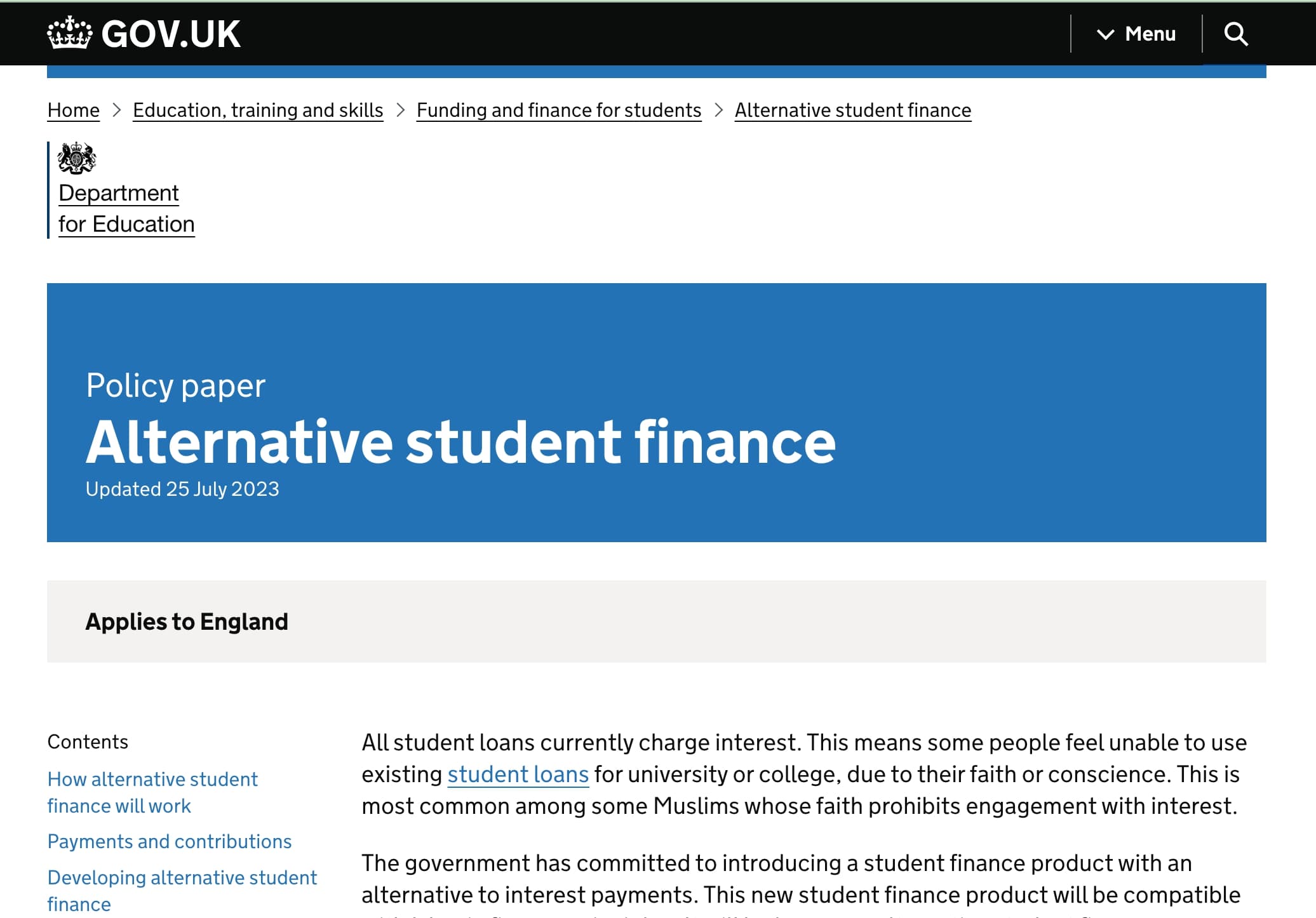Introduction
The introduction of halal student loans by various financial institutions has been hailed as a significant step in providing Muslim students with access to interest-free financing for their educational pursuits. However, in scrutinizing the concept of halal student loans for Sharia compliance, it becomes essential to explore the perspective of the Hanafi school of thought, which is one of the prominent Islamic jurisprudential traditions. This article delves into the principles of the Hanafi school of thought concerning Riba and critically evaluates the concept of halal student loans from that standpoint.
1. Understanding the Hanafi School of Thought on Riba
The Hanafi school of thought emphasises strict adherence to the Qur’an and the teachings of the Prophet Muhammad (peace be upon him). According to Hanafi scholars, Riba, in all its forms, is unequivocally prohibited in Islam. Riba refers to the concept of usury or unjust gain, and engaging in such transactions is considered a grave sin.
2. Halal Student Loans: The Hanafi Perspective
2.1. The Interest-Free Nature
From a Hanafi standpoint, the interest-free nature of halal student loans is in line with the prohibition of Riba. By eliminating any form of interest or usury from the loan, these financial products uphold the fundamental principles of the Hanafi school of thought.
2.2. Compliance with Educational Purpose
To be deemed halal, student loans must strictly be used for educational purposes only. The Hanafi school of thought places great importance on transparency and the fulfillment of contractual obligations. Therefore, ensuring that the funds are directed solely towards education aligns with Hanafi principles.
2.3. Ethical Sourcing of Funds
Another vital aspect from the Hanafi perspective is the ethical sourcing of funds for halal student loans. If the financial institution adheres to ethical investment principles and avoids businesses or activities that are considered haram (forbidden), it aligns with the Hanafi school’s emphasis on ethical financial practices.
3. Riba in Other Financial Products
While halal student loans, in principle, need to comply with the Hanafi school of thought’s stance on Riba, it is essential to recognize that the prohibition of Riba extends to all financial transactions. Hanafi scholars often emphasize the avoidance of Riba in all aspects of life, including investments, savings, and trade.
4. Seeking Clarification from Scholars/Ulama.
Given the complexity of Islamic jurisprudence and the varying interpretations of Islamic principles, it is advisable for individuals seeking halal student loans to consult with qualified Hanafi scholars with expertise in Islamic finance. These scholars can provide specific guidance based on individual circumstances and ensure that all aspects of the financial arrangement align with the Hanafi school’s teachings.
5. Additional Considerations for Hanafi Students
5.1. Qard Hasan as an Alternative
While halal student loans are designed to be Sharia-compliant, some Hanafi students may opt for Qard Hasan as an alternative financing option. Qard Hasan refers to a benevolent loan that is provided without any expectation of profit or interest. This option can be explored if available and feasible.
5.2. Scholarships and Grants
Scholarships and grants that do not involve any interest or financial obligations can also be considered halal options for funding education, according to the Hanafi school of thought.
Conclusion
Scrutinizing the concept of halal student loans for Sharia compliance, particularly from the perspective of the Hanafi school of thought, reveals that the interest-free nature, compliance with educational purposes, and ethical sourcing of funds make these financial products in harmony with Hanafi principles. However, individuals must remain vigilant and seek guidance, and a second opinion from qualified scholars to ensure complete adherence to Islamic teachings, especially in matters related to finance and Riba. By doing so, Muslim students can pursue their educational goals with peace of mind, knowing that their financial decisions align with their faith.
FAQs
1. What is the process of ensuring ethical sourcing of funds for halal student loans? Ethical sourcing of funds involves avoiding investments in businesses or industries that are deemed haram, such as alcohol, gambling, or usurious transactions. Financial institutions may have dedicated Sharia boards that oversee and ensure compliance with ethical principles.
2. Can Hanafi students use halal student loans for non-educational expenses? According to the Hanafi school of thought, halal student loans must be used solely for educational purposes. Deviating from this purpose would not be in accordance with Hanafi principles.
3. Is seeking advice from multiple scholars encouraged? Seeking advice from multiple qualified scholars is always encouraged, as it provides a comprehensive understanding of different perspectives and interpretations in Islamic jurisprudence.














